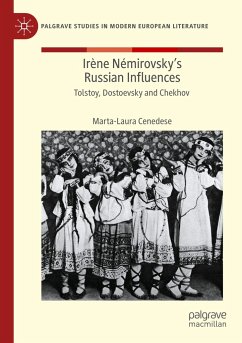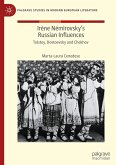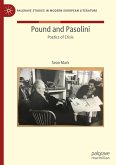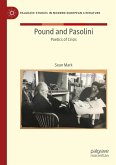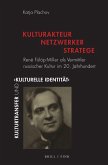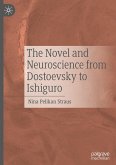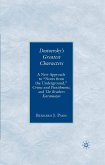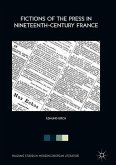This book explores the influence of Tolstoy, Dostoevsky, and Chekhov on Russian-born French language writer Irène Némirovsky. It considers the complexity of each of these relationships and the different modes in which they appear; demonstrating how, by skillfully integrating reading and writing, reception and creation, Némirovsky engaged with Russian literature within her own work. Through detailed analysis of the intersections between novels, short stories and archival sources, the book assesses to what degree Tolstoy, Dostoevsky and Chekhov influenced Némirovsky, how this influence affected her work, and to what effects. To this aim the book articulates the notion of creative influence, a method that, in conversation with theories of influence, intertextuality, and reception aesthetics, seeks to reflect a "meeting of artistic minds" that includesaffective, ethical, and creative encounters between writers, readers, and researchers.
Bitte wählen Sie Ihr Anliegen aus.
Rechnungen
Retourenschein anfordern
Bestellstatus
Storno

